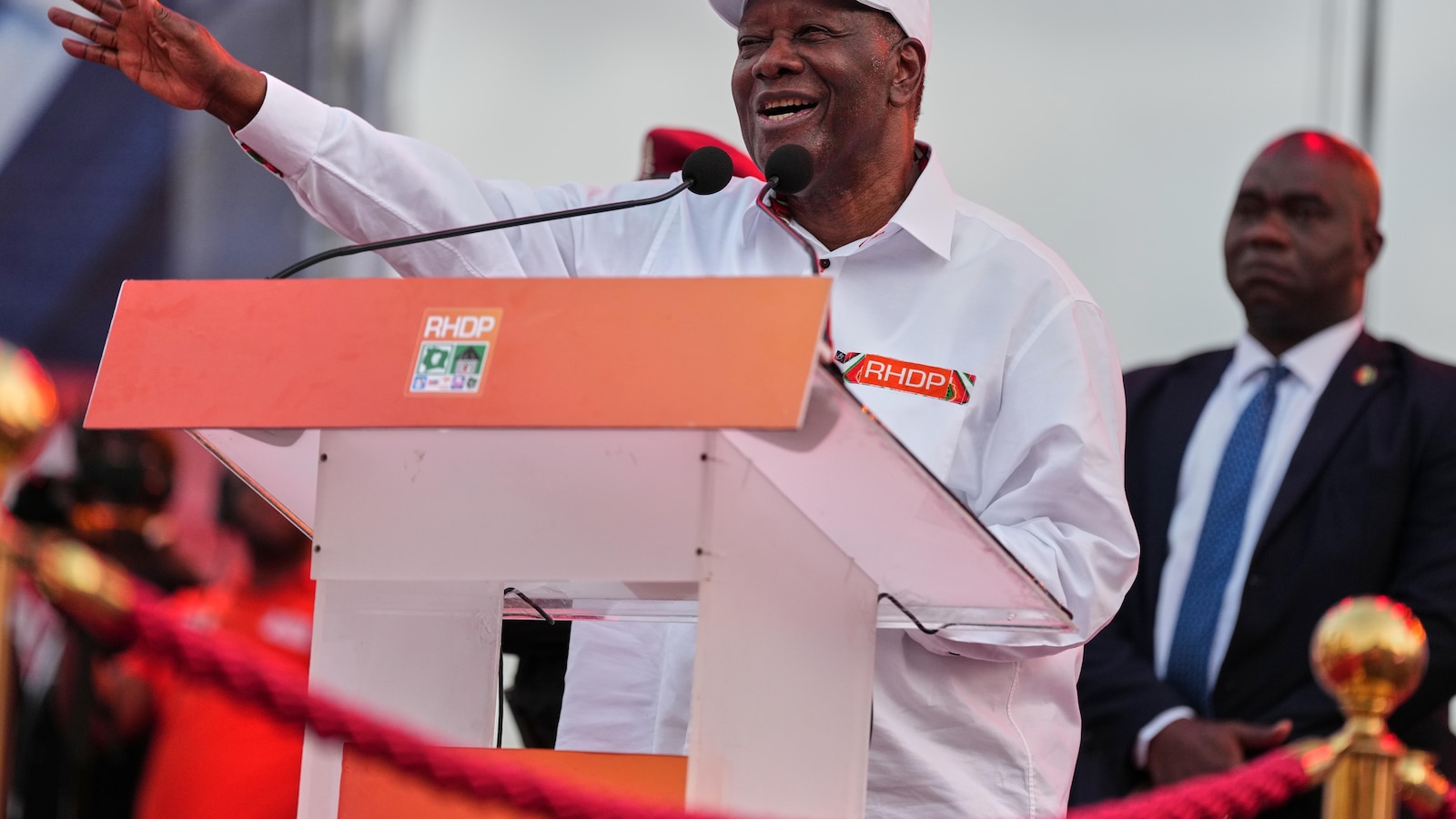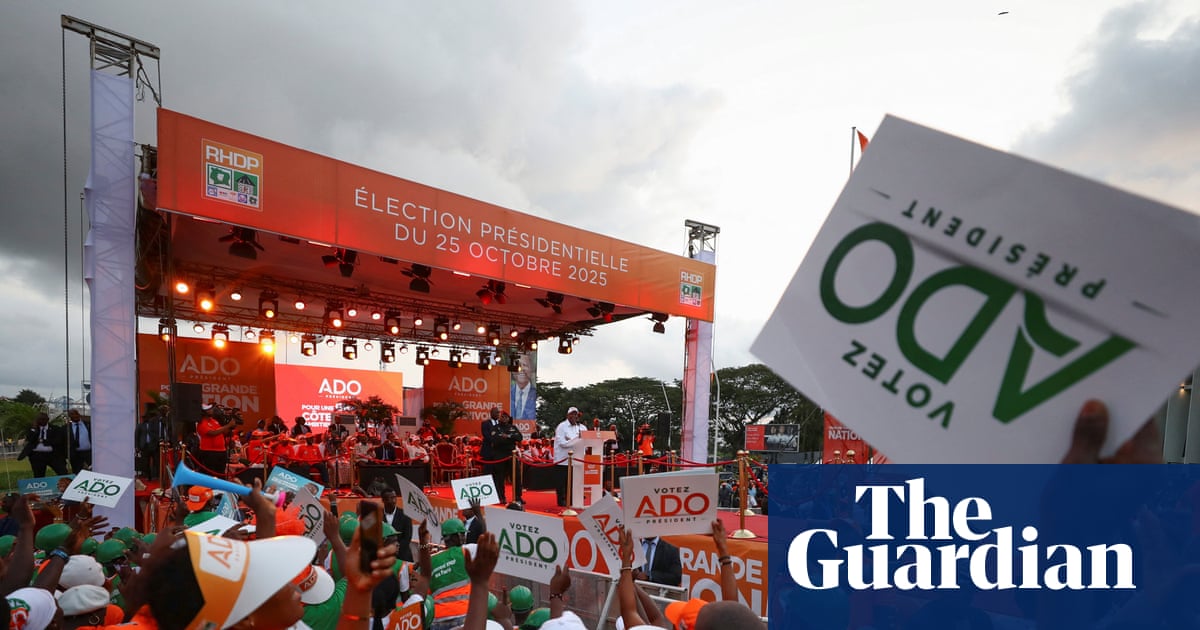Ivory Coast Holds Presidential Election Amidst Ouattara's Fourth Term Bid and Weakened Opposition
Ivory Coast's presidential election is underway, with President Alassane Ouattara seeking a fourth term. Key contenders are barred, weakening the opposition and sparking protests despite economic reconstruction.
Subscribe to unlock this story
We really don't like cutting you off, but you've reached your monthly limit. At just $5/month, subscriptions are how we keep this project going. Start your free 7-day trial today!
Get StartedHave an account? Sign in
Overview
- Polls opened in Ivory Coast for a presidential election where President Alassane Ouattara is seeking a controversial fourth term amidst a weakened opposition.
- Key opposition contenders were barred from contesting, leaving only five candidates and significantly weakening the challenge to incumbent Ouattara.
- Ouattara's bid follows his oversight of Ivory Coast's post-civil war economic reconstruction, which achieved a notable 6% annual growth rate.
- Despite economic progress, 37.5% of Ivory Coast's 30 million people live in poverty with limited job opportunities, contributing to public discontent.
- Protests against candidate exclusions marred the election build-up, leading the government to deploy over 40,000 security personnel nationwide.
Report issue

Read both sides in 5 minutes each day
Analysis
Center-leaning sources frame this story by highlighting the contentious nature of Ivory Coast's election, emphasizing President Ouattara's pursuit of a fourth term with key rivals barred. They underscore the protests, historical violence, and doubts about the vote's credibility, portraying the situation as another instance of an aging African leader consolidating power. While acknowledging economic growth, they balance it with persistent poverty and job scarcity.
Articles (5)
Center (2)
FAQ
Key opposition candidates were barred due to a criminal conviction (Laurent Gbagbo) and issues such as dual nationality (Tidjane Thiam), which made them ineligible to run in the election.
President Alassane Ouattara oversaw Ivory Coast's post-civil war economic reconstruction, achieving a notable annual growth rate of around 6%, contributing to relative stability over nearly 15 years.
Many young Ivorians, with a median age of 18, are skeptical of the aging political elite and demand real change, contributing to protests against the exclusion of opposition candidates and discontent despite economic progress.
The government deployed over 40,000 security personnel nationwide to maintain order during the election amid protests; the electoral commission emphasized peaceful voting and the presence of international observers from ECOWAS and the African Union.
Opposition leaders criticize the government for failing to address significant inequality, a high cost of living, and the fact that 37.5% of the population still lives in poverty with limited job opportunities.
History
- This story does not have any previous versions.




